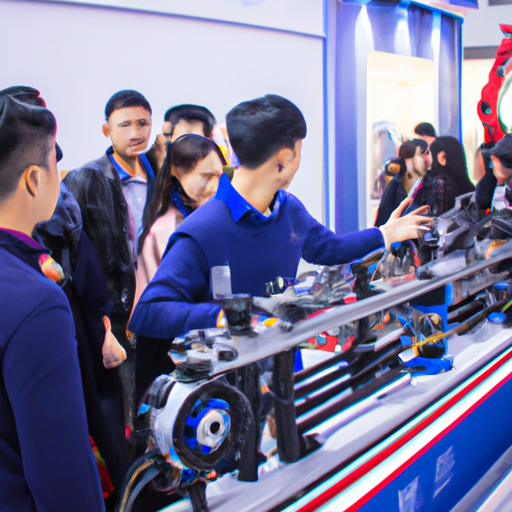LC resonator is a commonly used circuit component, used to achieve circuit resonance at a specific frequency. In the field of engineering, LC resonators are widely used in wireless communication, RF circuits, filters, and other areas. In order to better understand and master the principles and applications of LC resonators, the company has decided to organize training activities related to products. When conducting training, the following requirements should be noted:

Secondly, the training format should be diverse and flexible. In order to improve the training effectiveness, various forms such as lectures, case studies, and experimental demonstrations can be used. Through various forms of training, students' interest in learning can be stimulated, deepening their understanding and memory of LC resonators.
Thirdly, the training should focus on practical operations. In the training, practical operation sessions can be set up for students to personally build LC resonator circuits, adjust parameters, and observe experimental phenomena. Through practical operations, students can intuitively feel the working principles and characteristics of LC resonators, deepening their understanding of theoretical knowledge.
Furthermore, the training should emphasize interactive communication. Discussion sessions can be set up in the training for students to share their learning experiences and insights, raise questions and doubts. Through interactive communication, students can promote mutual learning and help each other, deepening their understanding and mastery of LC resonators.
Lastly, the training should focus on practical results. After the training, assessment sessions can be set up to test students' knowledge and skills. Through assessments, the learning effectiveness of students can be evaluated, problems and deficiencies can be identified in a timely manner, and the training content and methods can be further improved to enhance the practicality of the training.
In conclusion, LC resonator product training is an important task that needs to be comprehensively and systematically planned and organized. Only through scientific and reasonable training methods and approaches can the learning effectiveness of students be effectively improved, promoting the application and promotion of LC resonator products. It is hoped that the company will attach importance to training work, provide better learning opportunities and platforms for employees, and jointly promote the development and progress of the company.
LC resonator is a commonly used circuit component, used to achieve circuit resonance at a specific frequency. In the field of engineering, LC resonators are widely used in wireless communication, RF circuits, filters, and other areas. In order to better understand and master the principles and applications of LC resonators, the company has decided to organize training activities related to products. When conducting training, the following requirements should be noted:

Secondly, the training format should be diverse and flexible. In order to improve the training effectiveness, various forms such as lectures, case studies, and experimental demonstrations can be used. Through various forms of training, students' interest in learning can be stimulated, deepening their understanding and memory of LC resonators.
Thirdly, the training should focus on practical operations. In the training, practical operation sessions can be set up for students to personally build LC resonator circuits, adjust parameters, and observe experimental phenomena. Through practical operations, students can intuitively feel the working principles and characteristics of LC resonators, deepening their understanding of theoretical knowledge.
Furthermore, the training should emphasize interactive communication. Discussion sessions can be set up in the training for students to share their learning experiences and insights, raise questions and doubts. Through interactive communication, students can promote mutual learning and help each other, deepening their understanding and mastery of LC resonators.
Lastly, the training should focus on practical results. After the training, assessment sessions can be set up to test students' knowledge and skills. Through assessments, the learning effectiveness of students can be evaluated, problems and deficiencies can be identified in a timely manner, and the training content and methods can be further improved to enhance the practicality of the training.
In conclusion, LC resonator product training is an important task that needs to be comprehensively and systematically planned and organized. Only through scientific and reasonable training methods and approaches can the learning effectiveness of students be effectively improved, promoting the application and promotion of LC resonator products. It is hoped that the company will attach importance to training work, provide better learning opportunities and platforms for employees, and jointly promote the development and progress of the company.
LC resonator is a commonly used circuit component, used to achieve circuit resonance at a specific frequency. In the field of engineering, LC resonators are widely used in wireless communication, RF circuits, filters, and other areas. In order to better understand and master the principles and applications of LC resonators, the company has decided to organize training activities related to products. When conducting training, the following requirements should be noted:

Secondly, the training format should be diverse and flexible. In order to improve the training effectiveness, various forms such as lectures, case studies, and experimental demonstrations can be used. Through various forms of training, students' interest in learning can be stimulated, deepening their understanding and memory of LC resonators.
Thirdly, the training should focus on practical operations. In the training, practical operation sessions can be set up for students to personally build LC resonator circuits, adjust parameters, and observe experimental phenomena. Through practical operations, students can intuitively feel the working principles and characteristics of LC resonators, deepening their understanding of theoretical knowledge.
Furthermore, the training should emphasize interactive communication. Discussion sessions can be set up in the training for students to share their learning experiences and insights, raise questions and doubts. Through interactive communication, students can promote mutual learning and help each other, deepening their understanding and mastery of LC resonators.
Lastly, the training should focus on practical results. After the training, assessment sessions can be set up to test students' knowledge and skills. Through assessments, the learning effectiveness of students can be evaluated, problems and deficiencies can be identified in a timely manner, and the training content and methods can be further improved to enhance the practicality of the training.
In conclusion, LC resonator product training is an important task that needs to be comprehensively and systematically planned and organized. Only through scientific and reasonable training methods and approaches can the learning effectiveness of students be effectively improved, promoting the application and promotion of LC resonator products. It is hoped that the company will attach importance to training work, provide better learning opportunities and platforms for employees, and jointly promote the development and progress of the company.
LC resonator is a commonly used circuit component, used to achieve circuit resonance at a specific frequency. In the field of engineering, LC resonators are widely used in wireless communication, RF circuits, filters, and other areas. In order to better understand and master the principles and applications of LC resonators, the company has decided to organize training activities related to products. When conducting training, the following requirements should be noted:

Secondly, the training format should be diverse and flexible. In order to improve the training effectiveness, various forms such as lectures, case studies, and experimental demonstrations can be used. Through various forms of training, students' interest in learning can be stimulated, deepening their understanding and memory of LC resonators.
Thirdly, the training should focus on practical operations. In the training, practical operation sessions can be set up for students to personally build LC resonator circuits, adjust parameters, and observe experimental phenomena. Through practical operations, students can intuitively feel the working principles and characteristics of LC resonators, deepening their understanding of theoretical knowledge.
Furthermore, the training should emphasize interactive communication. Discussion sessions can be set up in the training for students to share their learning experiences and insights, raise questions and doubts. Through interactive communication, students can promote mutual learning and help each other, deepening their understanding and mastery of LC resonators.
Lastly, the training should focus on practical results. After the training, assessment sessions can be set up to test students' knowledge and skills. Through assessments, the learning effectiveness of students can be evaluated, problems and deficiencies can be identified in a timely manner, and the training content and methods can be further improved to enhance the practicality of the training.
In conclusion, LC resonator product training is an important task that needs to be comprehensively and systematically planned and organized. Only through scientific and reasonable training methods and approaches can the learning effectiveness of students be effectively improved, promoting the application and promotion of LC resonator products. It is hoped that the company will attach importance to training work, provide better learning opportunities and platforms for employees, and jointly promote the development and progress of the company.








